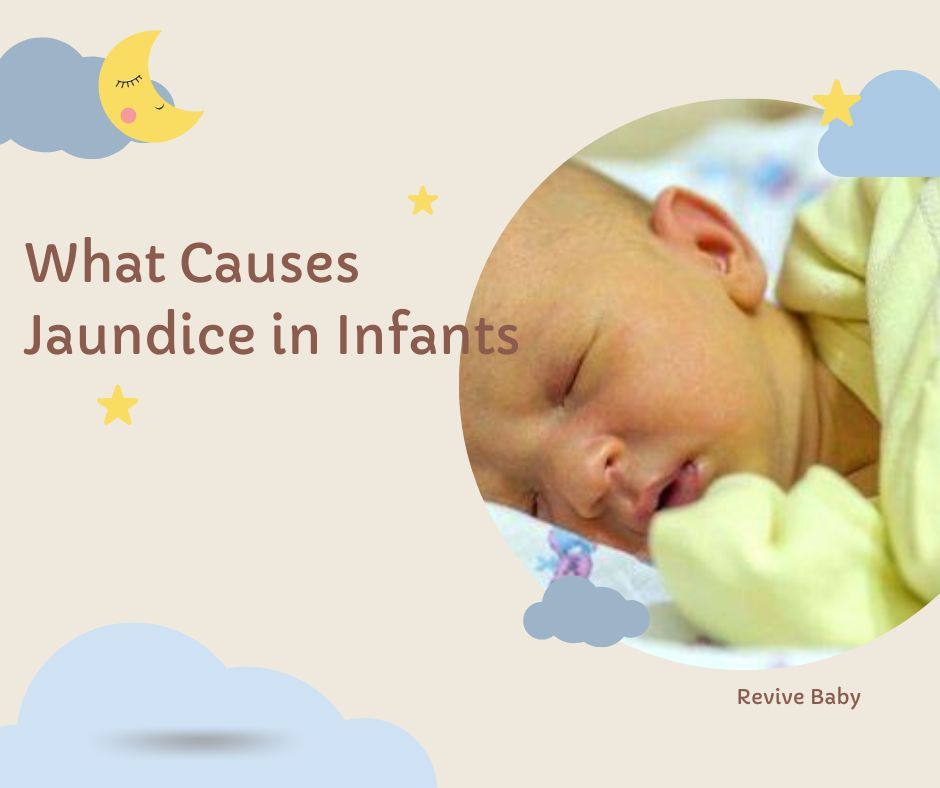Jaundice can be caused by liver problems or a baby’s genes. It can also be caused by problems with the gut or intestines (for example, if they don’t work properly) or the way the liver works (for example, if it doesn’t produce enough glucose) or your baby sleeps alot or maybe he remains restless.
Symptoms Of Jaundice
Jaundice may cause other symptoms, such as:
- Stole is lighter in color (yellow or orange)
- Urine that is darker and yellower than usual.
Symptoms of infant jaundice often begin to appear within two days after the baby's birth, and they typically resolve themselves within two weeks.
Symptoms
Infant jaundice is commonly visible between the second and fourth day after delivery as a yellowing of the skin and whites of the eyes. Press lightly on your baby's forehead or nose to check for newborn jaundice.
There is a good chance your kid has mild jaundice if the skin appears yellow where you pushed. If your baby does not have jaundice, the skin tone will seem somewhat lighter than usual for a brief period of time. The best way to examine your newborn is to do it in natural daylight.
Causes
- Babies that are most susceptible to having neonatal jaundice are those who are born prematurely.
- Babies born prematurely (before 37 weeks of pregnancy)
- Because they're having difficulty eating or because their mother hasn't yet produced enough milk, newborns who aren't obtaining enough nutrients from breast milk or formula.
- When a baby's blood type is incompatible with their mother's, antibodies might build up and kill the red blood cells, resulting in an increase in bilirubin levels and other complications. Jaundice may be caused by a variety of other things, including:
- Abnormalities in the red blood cells of your newborn
- There are serious liver issues.
- Bruises or other internal bleeding during childbirth
When should you visit a physician?

Most hospitals have a pre-discharge jaundice screening protocol. As part of standard medical checkups, babies should be checked for jaundice at least every eight to 12 hours while in the hospital.
Jaundice should be checked for between the third and seventh day after delivery, wen bilirubin levels are at their highest. Make a follow-up visit to check for jaundice within two days of discharge if your infant is released sooner than 72 hours after delivery.
Severe jaundice or bilirubin overload might manifest as any of the following signs or symptoms. If you're experiencing any of the following symptoms:
- Your infant is wailing in a loud, high-pitched voice.
- A yellowing of your baby's skin is apparent.
- Your baby's eyes seem yellowish.
- You should be concerned if your infant shows any additional signs or symptoms.
- Your baby's belly, limbs, and legs seem yellow to you.
- The weight increase or inadequate feeding of your infant concerns you.
- Your infant seems to be drowsy, ill, or otherwise unresponsive.
Is jaundice in newborns really common?
It is not uncommon for newborns to suffer from jaundice. Jaundice affects around six out of every ten newborns, including eight out of ten newborns born before the 37th week of pregnancy. A blood bilirubin level that necessitates therapy affects only around 1 in every 20 infants.
Breastfeeding seems to raise a baby's chance of getting jaundice, which may last for up to a month or more in certain cases for unknown reasons. However, in most circumstances, the advantages of nursing exceed the dangers of jaundice.

Infant jaundice - How to treat it?
The symptoms of infant jaundice typically subside on their own within 10-14 days, thus treatment is not usually necessary.
However, this is not always the case. Only if bilirubin levels in a baby's blood are very high should treatment be considered. Bilirubin may enter the brain and cause brain damage, thus this is why it's not recommended. In the hospital, there are two basic ways to lower your baby's bilirubin levels fast. These are the ones I'm talking about:
- Transfusion is when your baby's own blood is taken and replaced with blood from a matched donor by the use of a catheter inserted into their blood arteries; After a few days in the hospital, most newborns are healthy enough to be discharged.
- It is possible to use a special type of light on the skin to alter bilirubin into a form that is easier for the liver to process and eliminate.
Is it possible to avoid infant jaundice?
Newborn jaundice cannot be prevented. You may get your blood type checked when you are pregnant. If blood type incompatibility is suspected as a cause of newborn jaundice, your baby will be tested after birth. Jaundice may be treated to prevent it from becoming worse if you act quickly.
For the first week, give your infant 1 to 2 ounces of formula every two to three hours if you are not nursing. Premature or petite newborns, as well as those who are getting breast milk, may need fewer servings of formula.
Your doctor should be consulted if your baby refuses to eat at least eight times a day, or if they are consuming too much or too little formula.
Make sure your baby is getting the nutrition it needs from breast milk. For the first few days, feeding your infant 8 to 12 times a day ensures that your kid isn't dehydrated, which aids in the removal of bilirubin from their system.
Your baby's skin and eyes should appear yellow within the first five days of life as a warning sign of jaundice. Call your doctor right away if you discover that your infant is showing signs of jaundice.
FAQs:
Q: Is it necessary for baby to turn yellow?
A: It depends on the skin tone of the baby, if baby has lighter skin tone then it would most likely to turn yellow but for darker skin tones, they might hide away the yellowish tone.
Q: Is jaundice incurable?
A: No, it can be cured with right medications and care.










